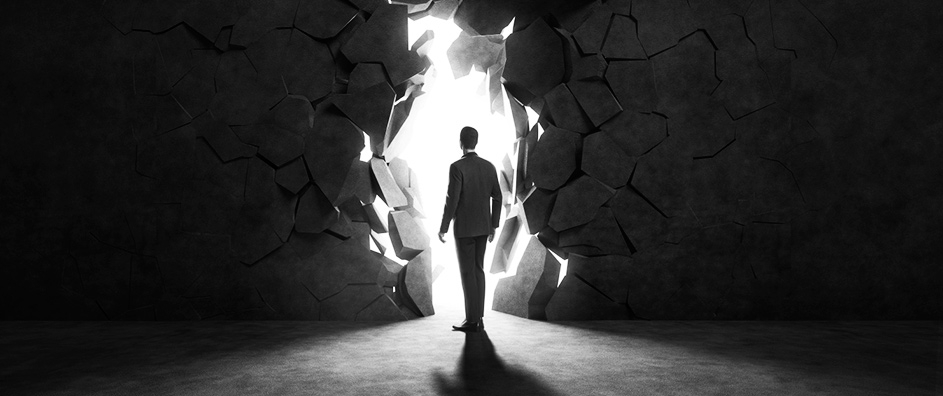The views expressed in our content reflect individual perspectives and do not represent the authoritative views of the Baha'i Faith.
Our monthly book club has read a number of volumes set during in the Civil War era and some that take place during World War II. Based in several countries, with differing plots, the thread of what happens in wartime ties them together. Both the fiction and non-fiction accounts contain heart-stopping suspense.
Of the World War II tomes, Hotel on the Corner of Bitter and Sweet tells the story of a Japanese-American family who spent the war years in a relocation camp in the United States. The Risk of Sorrow features interviews by an Arizona teacher with a Holocaust survivor living in Phoenix. The Paris Architect takes place in France during the Nazi occupation. The protagonist, a French architect, is drawn, at first reluctantly, later with zeal, into designing ingenious hiding places for Jews hunted by the Gestapo. Some of us also read The Zookeeper’s Wife, about Polish zoo owners who concealed Jews in vacant animal cages.
Liar, Temptress, Soldier, Spy shares the exploits of four intrepid women, two on the side of the Union, one of whom developed clever ways to assist Union soldiers to escape Confederate prisons, hide them, and then aid their return to the Union side. She developed a spy network utilizing a former slave, servants, and other Union sympathizers. The other, a woman disguised as a man, served as a Union soldier, and sometimes disguised herself as a woman and/or a slave in order to enter rebel territory and gather intelligence. The other two passionately and effectively used their feminine wiles to spy for the Confederacy.
When we discuss these books, we usually ask each other “What would you do?” We review the stories and wonder how we might react personally if it we found ourselves in that same situation.
We imagine ourselves in place of the hunted Jews, keeping themselves quiet when panic made them want to scream in terror, so sure their hiding place would be discovered. They worried not only about getting themselves caught, but also had deep concern for those “righteous Gentiles” who risked all to try to save them. Some chose to be prudent and walk away, leaving their loved ones, friends and neighbors to whatever dire fate might befall them. Worse were those who outed Jews to the Nazis in order to curry favor. Ah, but then there were those who determinedly worked to try and save Jews, risking their very lives and perhaps the lives of others around them. Some of the Civil War stories contained similar scenarios.
All of us expressed the wish that we would find the strength in similar situations to choose the moral high road, but each doubted they’d be brave enough. Yet we all acknowledged that we couldn’t know for sure how we’d react in such desperate situations.
I believe the best way to prepare ourselves for such severe spiritual trials is to pray, read the Holy texts and meditate upon them, seeking to find the deeper, hidden meanings within those blessed words. When we internalize them, it helps give us the strength to face our tests.
In this excerpt from the play When the Moment Comes, which takes place in the 1980s and is based on interviews by playwright Ann Boyles with survivors of the severe persecutions of Iranian Baha’is following the 1979 Islamic Revolution, a similar question arises. The scene for this excerpt takes place in Evin Prison. A group of women compare notes about the tortures they’ve undergone. One turns to the audience to explain:
I don’t know how we survived it. Physical strength, endurance — these weren’t enough. The pain was too intense. When that is happening to you, you think, ‘I can’t bear this. This is too much, Baha’u’llah. Why me? I can’t stand it anymore!’ and you can’t bear the pain by yourself. Somewhere in the middle of all of it you realize that. And you know that you have a simple choice to make. The guards, they want you to deny your faith. That is the only reason they are doing this to you. And if you deny your faith, the pain will stop. But, then you realize that your faith is your life and you are not going to give it up… So you can’t bear the pain anymore, and you’re not willing to do the thing that will stop the pain. Really, then, there’s only one way you can deal with what’s happening to you. You begin to pray. You turn your thoughts away from your body, away from the pain, to Baha’u’llah. And, as you pray, something very strange happens. Somehow, you enter a place where there is no pain. Oh, your body is there on the bed, enduring it—but your spirit isn’t in that body. It’s somewhere else. It’s hard to explain. But, back in the cell, we would speak about it, and all of us had that out-of-body experience as we prayed during flogging.
These kinds of horrible ordeals challenge us to follow this remarkable advice from the Baha’i teachings:
…you must be in the utmost state of joy and fragrance, love and kindness toward all, even toward the enemies. Meet the persecutions and adversity with the utmost faithfulness. Whenever animosity appears deal with it with forbearance… Brave the ridicule, the blame and the rebuke with perfect love so that all the nations may observe the power of the Most Great Name, and all the people may acknowledge the potency of [Baha’u’llah], showing how He hath destroyed the foundation of strangeness, hath guided the inhabitants of the world to unity and love, hath illumined the realm of man and hath transformed this terrestrial globe into the delectable paradise. – Abdu’l-Baha, Abdu’l-Baha in Egypt, p. 114.
















Comments
Sign in or create an account
Continue with Googleor